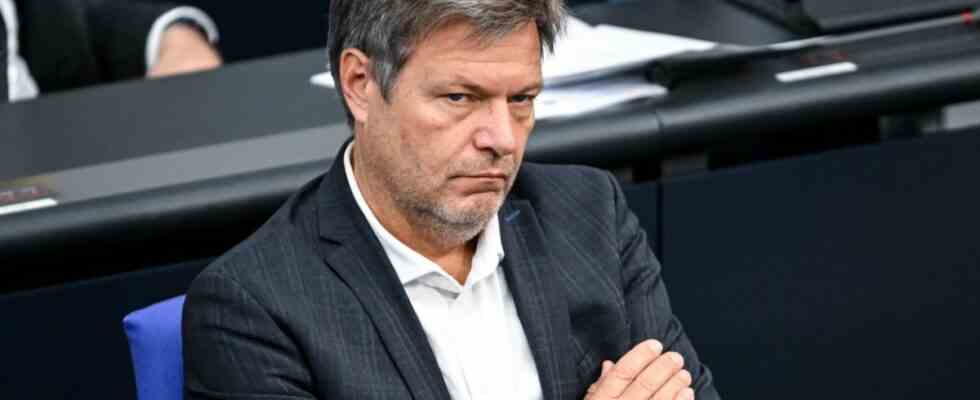Federal Minister of Economics Robert Habeck (Greens) wants to make the rules for arms exports more restrictive. This emerges from the key points for a corresponding national law, which his State Secretary Sven Giegold presented on Thursday in Berlin. “When deciding on arms exports, both respect for human rights and European arms cooperation are given greater weight,” Giegold said Süddeutsche Zeitung. There should be a legal framework for joint projects with European partners. The list of countries that can be supplied like NATO and EU member states is to be expanded. The cornerstones still have to be agreed in the federal government before a draft law can be drawn up.
Habeck is taking a significantly different line than Defense Minister Christine Lambrecht (SPD). He had recently rejected their demand to facilitate exports of armaments from European joint projects. Germany is “in an obligation to deliver,” said Lambrecht. If France, Italy or Spain consider deliveries to third countries to be justifiable, Germany cannot veto it. Chancellor Olaf Scholz (SPD) has announced that he will review all “national reservations and regulations” for the export of jointly manufactured systems. Germany’s security depends “also on European armament capabilities”.
Green resistance to delivery to Saudi Arabia
Habeck wants to ensure that the countries involved in cooperation projects decide on exports together with a majority and no longer individually according to the respective interpretation of the criteria agreed in the EU. He is aiming for a European regulation for arms exports. The Greens, whose federal party conference begins this Friday, are vehemently opposed to the delivery of spare parts for fighter jets and ammunition to Saudi Arabia. The federal government had approved it with the participation of Habeck and Foreign Minister Annalena Baerbock. It is about the fulfillment of old contracts in the course of a joint project that were closed by previous governments. Germany is bound by it. Otherwise damages would be due. The coalition agreement states that exports of armaments to countries involved in the Yemen war – such as Saudi Arabia – will not be approved.
According to Habeck, compliance with human rights should be ensured by not issuing export licenses if there is “reasonable suspicion” that armaments could be used for internal repression, systematic human rights violations, gender- or minority-specific violence or in connection with the use of child soldiers will. In the case of illegal exports, manufacturers should no longer be protected from civil lawsuits. Not included in the key points is the right of collective action, which is demanded by many Greens.
German defense industry fears competitive disadvantages
With a Europe-wide uniform regulation, Habeck wants to prevent the main production sites for weapon systems in European joint projects from going to the country in which the criteria for arms exports jointly agreed in the EU are interpreted the least strictly. This is also in the interest of the German defense industry, which fears competitive disadvantages. France in particular, which is working with Germany to develop a new fighter jet and a tank, has repeatedly complained that such projects cannot be financed if the weapon systems cannot also be sold to third countries.
The Ministry of Economics wants to increase the transparency of granted permits by informing the Bundestag about all deliveries of war weapons to third countries that do not belong to NATO or the EU. South Korea, Singapore, Chile and Uruguay are to be given the same status as NATO and EU countries. Habeck is also considering making license data for arms exports publicly available in a database. Approval procedures are to be simplified and include stricter anti-corruption guidelines.
In addition, so-called post-shipment controls are to be extended, in which the federal government checks whether any reservations in export permits are being complied with by the recipient country. Violations are said to have an impact on future approvals. In addition, controls should be possible for all armaments and weapons of war and, in justified cases, also in EU and NATO countries. Export licenses would therefore also depend on whether recipient countries consent to such controls.

